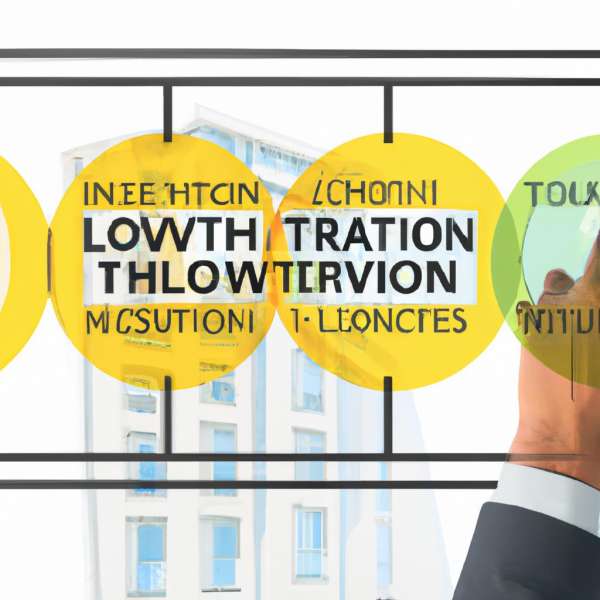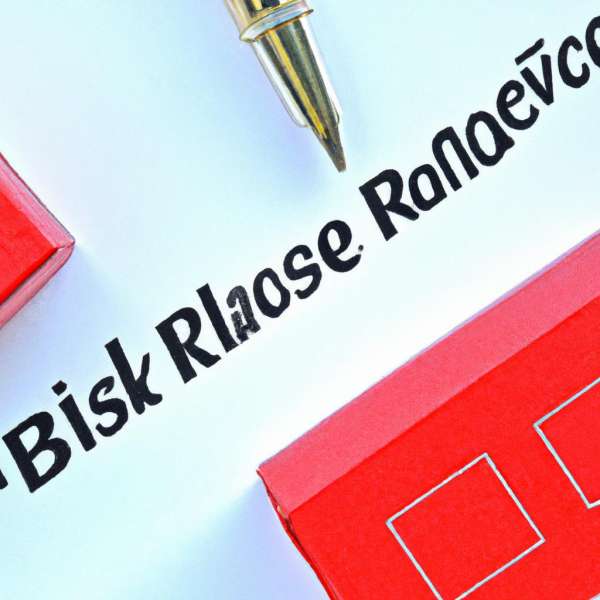Navigating the intricate maze of real estate law is like mastering a dance where the rhythm shifts with market fluctuations, societal shifts, and technological advancements. As we step into a new era of property transactions and land use, the landscape of real estate law is undergoing profound transformations. From the implications of remote work on commercial leasing to the rising tide of environmental regulations, industry stakeholders find themselves at a crossroads, balancing opportunity and challenge. This article delves into the latest trends shaping real estate law, while also unearthing the challenges that practitioners, investors, and homeowners must grapple with in this evolving terrain. Join us as we explore the dynamic interplay between legal frameworks and real estate developments, unveiling insights that are crucial for navigating this multifaceted field.
Emerging Legal Trends in Real Estate: Navigating the Modern Landscape
The real estate landscape is continuously evolving, driven by technological advancements, changing consumer behaviors, and shifting regulations. As legal professionals navigate this dynamic environment, several key trends have emerged that shape the practice of real estate law:
- Increased Focus on Sustainability: As environmental concerns gain traction, sustainable practices in real estate are becoming imperative. Legal frameworks are evolving to address green building certifications, energy efficiency regulations, and eco-friendly land use policies.
- Remote Work and Its Impact on Commercial Leasing: The rise of remote work has prompted a reevaluation of commercial space requirements. Negotiations around lease terms are shifting, with landlords and tenants exploring flexible arrangements that accommodate a hybrid workforce.
- Technology Integration: The incorporation of technology, such as blockchain for property transactions and AI for property management, is transforming the way real estate transactions are conducted. Legal practitioners must adapt to these innovations to provide effective counsel.
- Short-term Rentals Regulation: The popularity of platforms like Airbnb has led to increased regulatory scrutiny. Jurisdictions are implementing stricter regulations on short-term rentals, requiring legal expertise to navigate local laws and zoning issues.
In light of these trends, the role of legal counsel is becoming increasingly interdisciplinary. Real estate professionals must stay informed about not only legal statutes but also market dynamics and technological innovations. Effective legal strategies in real estate now prioritize:
| Focus Area | Key Considerations |
|---|---|
| Sustainability Compliance | Understanding green certifications and environmental regulations. |
| Commercial Leasing Dynamics | Adapting contracts to reflect changing workplace needs. |
| Technological Adaptation | Leveraging new tech for efficiency and accuracy in transactions. |
| Short-term Rental Policies | Navigating local regulations and compliance requirements. |
As industries adapt to these emerging trends, real estate law professionals must remain vigilant and proactive, ensuring that their practices not only adhere to current regulations but also anticipate future changes. The interplay between innovation and legislation will undoubtedly continue to shape the real estate market for years to come.

Key Challenges Facing Real Estate Transactions: Understanding Risks and Solutions
Real estate transactions are a complex web of legal, financial, and logistical elements. The landscape is often fraught with challenges that can ultimately threaten the viability and success of a deal. One of the most significant issues is the **uncertainty in property valuations**. Fluctuating market conditions can lead to disparities in buyer and seller expectations, resulting in stalled negotiations or failed transactions. Accurate appraisals conducted by certified professionals are crucial, yet even these can be influenced by external factors such as economic shifts or local market trends.
Another pressing risk comes from **due diligence inadequacies**. Buyers must navigate a labyrinth of inspections, disclosures, and legal obligations. Failing to identify a property’s hidden defects or legal encumbrances can lead to costly surprises post-acquisition. It’s vital for parties involved to ensure comprehensive title searches and property assessments are completed, irrespective of how straightforward the transaction appears. Additionally, understanding zoning laws and any pending legislation that may affect property use is essential to mitigate future disputes.
Moreover, **financing complications** continue to plague the industry, especially with fluctuating interest rates and changing loan regulations. The ripple effect of a denied mortgage can halt the momentum of a sale, causing undue stress on all parties. To combat this, pre-approval processes and robust communication with lenders can streamline funding avenues and minimize surprises. Building solid relationships with financial institutions can facilitate smoother transactions and more favorable terms.
| Challenge | Potential Impact | Solution |
|---|---|---|
| Valuation Discrepancies | Stalled negotiations | Engage certified appraisers |
| Due Diligence Failures | Legal disputes | Comprehensive property assessments |
| Financing Issues | Transaction delays | Strong lender relationships |

The Role of Technology in Real Estate Law: Innovations and Implications
As the real estate sector continues to evolve, technology plays a pivotal role in shaping legal practices and enhancing efficiency. Innovations are enabling lawyers and clients to navigate complex transactions with greater ease, leading to more transparent processes and improved communication. Here are some key technological advancements that are currently influencing real estate law:
- Blockchain Technology: This technology is revolutionizing property transactions by providing a secure and transparent ledger system. It simplifies the transfer of property ownership through smart contracts, ensuring that agreements are executed automatically and securely.
- Artificial Intelligence: AI tools can analyze vast amounts of legal documents and case law, assisting attorneys in performing due diligence much faster. This technology not only streamlines the research process but also identifies potential risks and legal hurdles early in a transaction.
- Document Automation: Automated document generation software reduces the time and costs associated with drafting contracts and legal forms. This is particularly beneficial for standard transactions, allowing lawyers to focus on more complex aspects of their practice.
- Virtual Reality and Augmented Reality: These technologies enhance property viewing experiences, allowing clients to explore properties remotely. This innovation saves time and broadens the market reach, giving legal practitioners more options to present to their clients.
However, with these advancements come several implications that legal professionals must consider:
| Innovation | Implication |
|---|---|
| Blockchain | Requires a rethink of traditional property registries and could face regulatory challenges. |
| AI | Raises questions about liability and the ethical use of automated systems in legal practices. |
| Document Automation | May lead to reduced employment opportunities for entry-level paralegals and administrative staff. |
| VR & AR | Could create issues related to representation, as clients might rely too heavily on virtual experiences. |
while the integration of technology within real estate law presents exciting opportunities for innovation and efficiency, it also necessitates a careful examination of the legal, ethical, and practical implications that these changes bring to the forefront of the industry.

Best Practices for Compliance and Risk Management in Real Estate Transactions
Maintaining compliance and managing risk in real estate transactions requires a systematic approach that involves understanding relevant laws and regulations. A few best practices can help mitigate potential hazards:
- Due Diligence: Conduct thorough background checks on all parties involved, including title searches and property inspections, to identify any undisclosed liabilities.
- Legal Documentation: Ensure all contracts are clearly written and reviewed by legal professionals. This includes purchase agreements, leases, and disclosures.
- Regular Training: Invest in ongoing training for staff about current laws and regulations, as well as emerging trends in the real estate market.
- Use Technology: Leverage software solutions for tracking compliance and risk management tasks, enabling better organization and reporting.
An effective compliance strategy also demands a solid framework for monitoring and auditing processes. Establishing key performance indicators (KPIs) can guide decision-makers in evaluating the health of transactions:
| Key Performance Indicator | Description |
|---|---|
| Transaction Timeliness | Measures the speed at which transactions are completed |
| Compliance Audit Results | Tracks pass/fail rates of compliance audits |
| Legal Disputes | Counts the number of disputes arising from transactions |
effective communication is crucial throughout the transaction process. Establish clear channels for sharing updates among all parties involved, ensuring everyone stays informed. Regular meetings and transparent reporting can help avoid misunderstandings and promote trust. A proactive approach to addressing potential issues can drive a seamless transaction experience, ultimately enhancing the reputation and reliability of real estate businesses.
Closing Remarks
As we navigate the ever-evolving landscape of real estate law, it becomes clear that the interplay of urban development, regulatory shifts, and technological advancements shapes our legal frameworks in profound ways. The trends we’ve explored reflect not only the current state of the market but also hint at where we might be headed in the future. Meanwhile, the challenges we face—ranging from environmental considerations to new methods of property transactions—demand that we remain vigilant and adaptable.
In a world where the only constant is change, those involved in real estate, whether as practitioners, investors, or homeowners, must stay informed and proactive. Preparing for tomorrow’s hurdles while capitalizing on today’s opportunities is paramount for success in this dynamic field. As we look to the future, one thing is certain: real estate law will continue to evolve, presenting both challenges and avenues for growth. By remaining attuned to these shifts, we can not only navigate the complexities but also contribute to a more resilient and equitable real estate environment for all.


